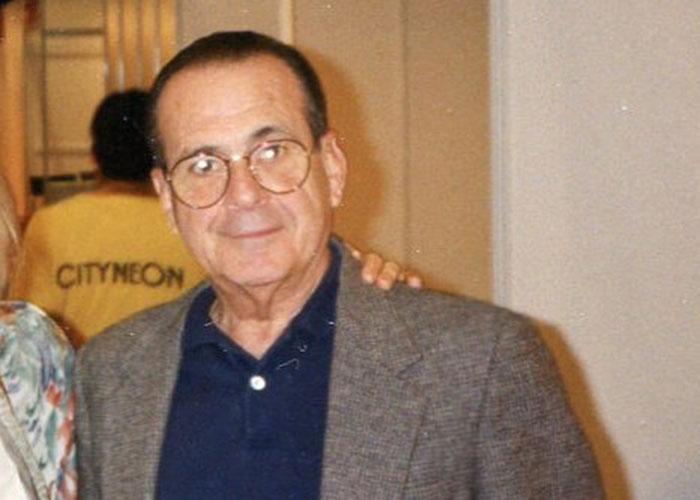The extraordinary long and successful TV career of 88-year old Armando Nuñez Sr. began with failures, and, in particular, major theatrical film failures. The first film failure that changed the course of his business life happened in 1963, when 20th Century Fox released Cleopatra, a film that lost $44 million ($340 million in today’s dollars). At that time, Nuñez was Fox’s office manager in New York City. The losses decimated Fox’s theatrical division staff, pushing him into a successful career in international television.
In 1965, he was called on by his former boss at Fox in Cuba, Thomas Siebert, who had joined the TV division of Lew Grade’s ITC in New York City. In 1980, ITC release the theatrical movie Raise The Titanic, which lost $27 million ($83 million in today’s dollars). This loss started a string of ownership changes that began with a mass firing and strategy changes at ITC, which elevated Nuñez to home video sales responsibilities for Latin America, the Far East and French-speaking Canada.
Nuñez’s career began in 1953, at Fox’s theatrical division in Cuba, after he graduated from Havana Business University. He recalled that, “at that time there was no television and I was booking 16 mm films to 27 theaters around Cuba.”
That job lasted up until October 1960, 10 months after Fidel Castro entered Havana and when Nuñez and his eight-month pregnant wife Clara Jo (née Webb) fled Cuba with only the $10 in cash ($82 in today’s dollars) they were allowed to take with them.
He had met Clara Jo when she was in Cuba as an exchange student from West Virginia. They married in Washington D.C. in 1958 and soon after returned to Cuba. Nuñez resumed working for Fox in New York City, where their firstborn, Armando Jr., was born in 1960 followed by another son, David, in 1966.
When Nuñez joined ITC in 1965, the TV division was under Abe Mandell. “Although I knew nothing about television,” he recalled, “I liked the challenge for what I was looking for: direct program sales.”
However, it wasn’t always smooth sailing. He remarked in 1998, “Many changes have been made at ITC, however I believe it is always for the best.” In 1982, as the result of Titanic’s loses, ITC was sold to Australian financier Robert Holmes à Court, who in 1987 sold it to Aussie tycoon Alan Bond, who immediately resold it to a management-led team backed by Montagu Private Equity, a division of U.K.’s Midland Bank, which was acquired by Hong Kong & Shanghai Bank (HSBC).
In 1993, Jules Haimovitz was hired by HSBC to rebuild and sell ITC. Meanwhile, Nuñez rose to executive vice president before ITC was sold to PolyGram in 1995, where he worked under David Ellender handling Latin America and Asian sales and then for Universal Studios when they acquired PolyGram in 1999.
Nuñez retired from Universal Studios in 2000 and moved out of New York City to Miami Beach, Florida, where he finally could resume one of his favorite sports: swimming. “Because the ocean water in New York was too cold,” he said.
He freelanced for Chris Phillip (a former executive at Universal Studios), then at Engine Entertainment, from 2009 to 2011, before completely retiring.
Nuñez’s most recent presence at a TV market was in 2013 when he received MIP-TV’s Medaille d’Honneur, but he fondly remembered his first TV trade show: it was NATPE 1966 in Chicago and the peculiarity of that event was that “it was only domestic and that it had a lot of radio business,” recalled Nuñez during a recent lunch meeting. (He picked up VideoAge’s reporter at his Miami Beach Hotel in his car and drove to Smith & Wollensky restaurant for soup and salad.)
Nuñez’s active 47-year career in the entertainment industry took him to visit all the territories for which he was responsible: Latin America, Canada, Japan, Korea the Philippines and Taiwan, and many of them repeatedly. He recalled visiting Japan over 100 times. In Japan Armando worked with Banjiro Uemura, who was heading the local ITC office.
And his biggest regret was not to being able to sell The Muppet shows’ complete episodes in one of his favorite countries: Japan. Up until 1982, ITC co-produced with Jim Henson and distributed The Muppet shows. “Japan only telecast one show out of eight,” he commented: “I was very disappointed,” he said.
However, he’s still proud of a move that allowed ITC’s then-owner Lew Grade to make a big U.S. sale. In 1978, ITC co-produced with Italy’s RAI Return of the Saint for Britain’s ITV that ultimately became a 24-episode series (Grade stopped production in order to save money for the aforementioned Raise The Titanic).
Despite the fact that it was an international success, Grade could not sell the show to a U.S. TV network. Enter Nuñez, who at that time was also responsible for Canada and sold the series to CBC. Grade was able to license 22 of the one-hour episodes to CBS, by leveraging the fact that Canadian TV signals spill into the U.S., and Canadians can sell successful series to U.S. advertisers (or in the case of the non-commercial CBC, can syphon off audiences).
Then, there was the achievement of one of world’s first TV show colorization processes. To inaugurate Mexico’s full-time color TV transmissions in October 1968, during Mexico’s Summer Olympics, Nuñez managed to colorize jointly with Canal 5 Telesistema (now Televisa) the black-and-white episodes of the British puppet TV series Thunderbirds and the original The Saint TV series with Roger Moore, both from the early 60s. The color versions were subsequently sold by ITC to other countries.
Nuñez has made several trips back to Cuba. In 2011 he took his son Armando Jr., president and CEO, CBS Global Distribution Group with him for the first time. The second-born David, also in the entertainment industry, is a former program manager for USA Network LATAM and program director for Sony’s AXN.
By Dom Serafini
Audio Version (a DV Works service)












Leave A Comment